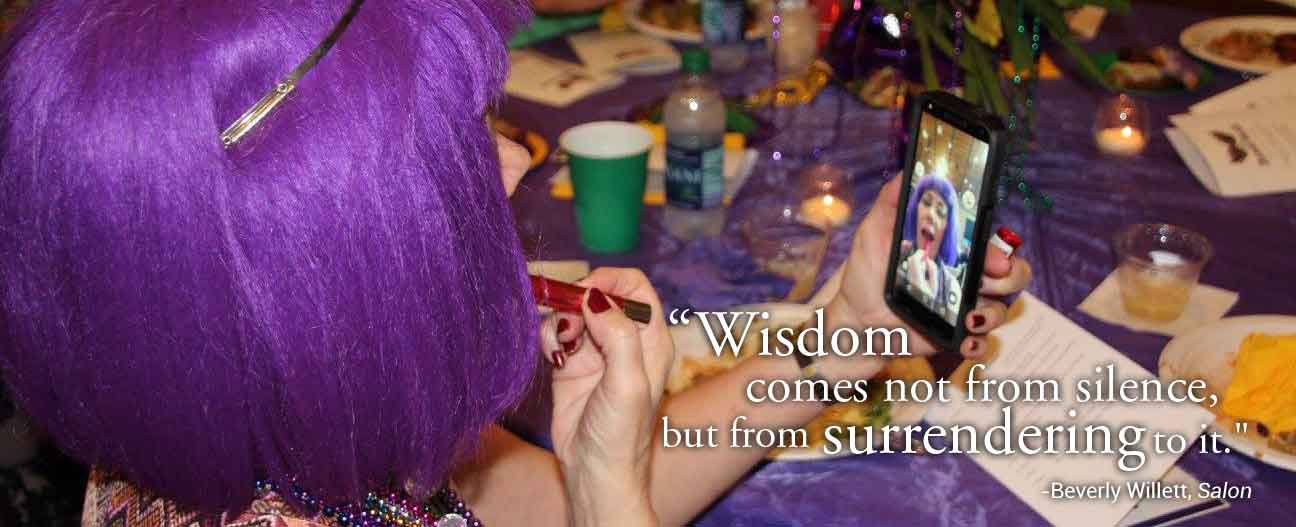
![]() 12/16/18
12/16/18
Baby It’s Cold Outside: Harmless Classic or Date Rape Ditty?
I took a fresh look at the lyrics anyway. Through the lens of 2018, I suddenly understood how a cold reading could potentially invoke images of possible date rape in Act II. And my heart softened toward those fearful of that experience.
Now, I just feel sad; America has lost its innocence. How can we possibly unite the warring factions of those who find no threat in the classic music they love and those who are legitimately scared?
I grew up in a small rural town. As a child, I picked strawberries in my grandmother’s garden, cycled to the general store for penny candy, and caught fireflies in jars on summer nights. As a teen, boys showed up at my front door bearing flowers and, once inside, praised my mother’s spaghetti sauce. Music idols of the day like Peter Noone of Herman’s Hermits personified the perfect catch – a man who was sweet, gentle, and unfailingly devoted.
Baby boomers like me are often associated with the era of free love and psychedelic drugs. By the time of Woodstock, however, I’d never even kissed a boy. When the nation mourned the shootings at Kent State, I was still an early adolescent bemoaning the last episodes of I Dream of Jeannie and The Flying Nun. Even the frat boys in college never pressed their advantage when I overdrank at the weekly kegger.
Life didn’t remain that idyllic. Eventually I suffered all forms of abuse from men – physical, emotional, financial, and verbal. And my ex-husband had an affair and sued me for divorce.
I used to wonder why my mother never warned me about these other kind of men. Unfortunately, back then mothers rarely taught their daughters much about the opposite sex. Like me, my mother was the product of her times. Given the genteel nature of my dad, uncles, and grandfathers, I realized she’d probably never known any cads. Even though her parents struggled with finances, she too had a naive childhood, a gentler past that grounded us both for the strength of adulthood and emergence of more difficult times. And that is what I believe did help save me when I encountered those more difficult times – I knew that something different was possible from my own experience.
Margaret Whiting and Johnny Mercer recorded one of the most popular covers of “Baby It’s Cold Outside” in 1949. “This was an innocent time,” Margaret’s daughter, Debbi Bush Whiting, told me.
No question though the song was a bit racy. But “the woman in the song knew exactly what she was doing in the man’s house,” Whiting said. And she said her feminist girlfriends who also grew up with the song agreed with her – “it was not about date rape.”
“People are taking the standards of today and applying that to older music and reconstructing its meaning,” Whiting told me. I have to agree.
We live in a flat world now where we often can’t envision any experience other than our own, a world without nuance or context. A world where so many young men and women have and continue to grow up without reference points to a very different carefree past that for others of us was a reality. A time when “Baby It’s Cold Outside” had no overtones of fear and when “no” might actually have meant “yes.” Children today are lucky if they make it through preschool shielded from the incessant barrage of sexualized messages in our culture.
Yet if we can’t learn to see through the lens of others we will forever be at odds about everything. To be honest, depending on your experience, both viewpoints of the song are valid.
Certainly the #MeToo movement is shining a much-needed light on sexual assault and harassment. We can’t ignore reality. And parents must of course always protect their children. But allowing fear to dominate and set our course for the future isn’t a wise strategy either.
So what is? I think we must demand and re-cultivate a culture of innocence, so that when children of today grow into the adults of tomorrow, they will know as I did through their own experience that something different, something better, is possible. We live in a society of fear when what we need most is a society of hope. One where children are once again free to play outside without supervision, free from the worries of adulthood prematurely invading their brief childhood. Where women who both say and mean “no” are taken at their word. Where sweet men like my father are plentiful. And where romance and dating and frisky flirtation, with men and women on equal footing, can flourish once again.
It’s a tall order, but impossible? I don’t think so. What about you?
![]() Tags:
#MeToo
·
Baby It's Cold Outside
·
date rape
·
Frank Loesser
·
holiday songs
·
Johnny Mercer
·
Margaret Whtiing
·
Me Too Movement
·
Snow
·
Winter
Tags:
#MeToo
·
Baby It's Cold Outside
·
date rape
·
Frank Loesser
·
holiday songs
·
Johnny Mercer
·
Margaret Whtiing
·
Me Too Movement
·
Snow
·
Winter
← BACK
Leave a Comment:
" Ostensibly about the break-up of her marriage and loss of her dream house, a four-story Victorian brownstone in Brooklyn's Carroll Gardens neighborhood, Beverly Willett's absorbing memoir is really about finding a home in one's own skin. A delight."
Courtney Hargrave, Author of Burden: A Preacher, A Klansman and a True Story of Redemption in the Modern South, a major motion picture starring Forest Whitaker
Susan Kerr Frye – Dec 17, 2018 at 11:48 AM